Welcome to the Research England Hydrogen Innovation Project, a pioneering collaboration between Teesside University and Durham University, aimed at catalysing the decarbonisation and advancement of hydrogen technologies in the Tees Valley. This ambitious four-year, £11 million, initiative leverages the combined strengths of our institutions to drive innovation, research, and capacity building in the region.
In an era where energy costs and environmental concerns dominate the agenda, prioritising the transition to cleaner energy solutions is paramount. While numerous obstacles stand in the way, we are committed to confronting these challenges head-on. Central to our mission is the development of a just transition to a net-zero economy, a key pillar of our research strategy.
This joint venture between Teesside and Durham Universities will harness our research strengths and unite a cadre of research fellows from industry and policy backgrounds. Together, we'll tackle complex challenges, such as transitioning to hydrogen for high-grade heating, deploying hydrogen in flexible power systems, and adopting hydrogen for heavy-duty transportation. Importantly, we will also investigate policy, regulatory hurdles, skill gaps ensuring a just transition to net zero that benefits both communities and the environment.
With a total investment of £11 million, this project is funded through diverse channels, notably receiving £4.8 million from the Research England Development (RED) Fund, a branch of UK Research and Innovation.
Over the last two decades, we've been pioneers in the regional drive to establish a hydrogen economy. Our £16.4 million Net Zero Industry Innovation Centre (NZIIC) is poised to build upon this legacy, offering state-of-the-art facilities and world-class expertise. This cutting-edge hub will act as the epicentre for collaborative initiatives between the University and an expanding network of industry collaborators. In parallel, Durham University, represented by the Durham Energy Institute (DEI ), plays a pivotal role in this initiative. As a multidisciplinary energy research hub, DEI leads the way in national and global efforts concerning hydrogen, spanning its production, storage, distribution, and utilisation. With active participation in numerous government, EU, and industry-funded projects, DEI brings a wealth of expertise to the table.
REHIP is taking a proactive approach to accelerate the journey toward a hydrogen-based economy. In a remarkable stride, the project is recruiting 14 Research Fellows who will collaborate closely with businesses, delving into industrial research and innovation initiatives. These dedicated fellows will play a pivotal role in advancing projects falling within the Technology Readiness Level (TRL) 3-7 range, with the ultimate aim of assisting businesses in overcoming technical challenges.
A distinguishing feature of this initiative is the Research Fellows' invaluable role in bridging the gap between academia and industry. These individuals will spend substantial time embedded within industrial settings, working on a spectrum of industrial research projects. This immersive experience not only fosters collaboration but also positions them as catalysts for change, driving the development of solutions poised for commercialisation.
The REHIP project inspires the next generation of STEM learners through dynamic outreach and engagement. At its core is a network of STEM ambassadors - industry and policy research fellows - who work with schools, universities and employers to design and deliver innovative learning experiences.
We currently do not have any conferences planned, please check again in the near future for updates.
19 March 2025
This conference explored hydrogen innovation and the just transition to a hydrogen economy, with insights from leading industry and academic voices including Hydrasun, Kellas Midstream, Lhyfe, BOC, Teesside University, Northern Gas Networks and more.
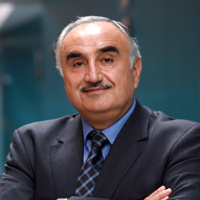
Professor Nashwan Dawood
Professor Nashwan Dawood, the Research Director at the Net Zero Industry Innovation Centre, brings a rich blend of academia and industry expertise spanning 30 years. With a track record of securing substantial research and innovation funding, Professor Dawood is a trailblazer in BIM processes, 5D technologies, smart energy systems, and offsite construction innovation. His extensive global collaborations underscore his leadership in driving transformative change in research and innovation, positioning the Net Zero Industry Innovation Centre at the forefront of sustainable solutions.

Professor Tony Roskilly
Professor Tony Roskilly is a seasoned expert in energy systems, boasting three decades of experience in designing, controlling, and optimising energy systems. He holds the Chair of Energy Systems at Durham University and is a Director of the Durham Energy Institute. Additionally, he serves as the UK representative for the European Energy Research Alliance (EERA). As Associate Director of the National Centre for Energy Systems Integration, Professor Roskilly leads pioneering research on infrastructure and storage, cementing his role as a driving force in the energy research landscape.
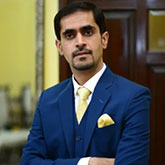
Dr Usman Ali
Dr Usman Ali is a research fellow with over 15 years' experience in CO2 capture, hydrogen pathways and sustainable energy systems. He integrates capture technologies into commercial power plants and models blue, green and turquoise hydrogen processes. With expertise in AI applications and fuel synthesis, he leads diverse projects including metal-organic framework-based CO2 conversion. He is also active in STEM outreach.

Dr Mahdi Amanipour
Dr Mahdi Amanipour is an assistant professor in research at Durham University. With over 12 years in energy and environmental engineering, he focuses on carbon capture and green hydrogen production. His work involves electrolysers and membrane modules, helping to create cost-effective, scalable hydrogen systems. As a REHIP researcher, he plays a key role in advancing clean energy in Teesside and beyond.

Simon Bradshaw
Simon Bradshaw, Project Manager for the Research England Hydrogen Innovation Project, has a successful track record managing ERDF hydrogen innovation projects. His industrial research background, including roles at ICI, Dupont, and Texon Non Woven Ltd, enhances his capability to drive ambitious research programs and collaborative initiatives. Simon's expertise lies in industrial collaborative research, making him an asset to REHIP's research endeavours.

Dr Junaid Haider
Dr Junaid Haider is an assistant professor in chemical engineering at Durham University, with over seven years' experience in process systems design. His research focuses on carbon capture, cryogenic separation, synthetic fuel production, and hydrogen liquefaction - supporting low-carbon transitions. Passionate about sustainable innovation, Dr Haider develops cost-effective, energy-efficient technologies that drive global decarbonisation and support just transitions to net zero.

Professor Dawid Hanak
Professor Dawid Hanak, Professor in the Decarbonisation of Industry at Teesside University, specialises in sustainable engineering processes. His research focuses on carbon capture, hydrogen production, and developing high-efficiency, low-carbon power generation systems. Professor Hanak's numerous research and commercial projects showcase his commitment to driving innovation and sustainability in process engineering, earning him prestigious awards in the field.
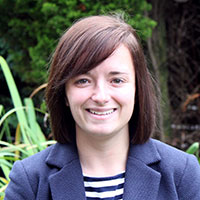
Dr Karen Johnston
Dr Karen E. Johnston is an Associate Professor in Inorganic Chemistry at Durham University, specialising in solid-state chemistry. She earned her PhD from the University of St Andrews and has postdoctoral experience from the University of Windsor and ALISTORE-ERI. Since joining Durham in 2015, Dr Johnston has focused on synthesising novel perovskite-based materials and developing solid electrolyte materials for all-solid-state batteries, examining their structural changes and ionic conductivity. She also explores polymer-based electrolytes, comparing their performance to ceramic options, contributing to advancements in battery technology and sustainable energy solutions.
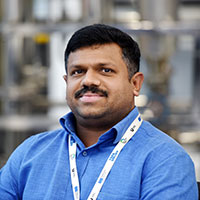
Dr Prasanth Karikkethu Prabhakaran
Dr Prabhakaran is a research fellow at Teesside University, specialising in sustainable materials for hydrogen production, storage and carbon capture. His research background spans the UK, France and India, including work with metal-organic frameworks, zeolites and other porous materials. With 18 publications and a US patent, he is a member of the Royal Society of Chemistry and an active contributor to REHIP's innovation goals.

Dr Zafar Khan Ghouri
Dr Zafar Khan Ghouri is a research fellow at Net Zero, specialising in nanomaterials for energy generation and storage. His research covers fuel cells, seawater electrolysis and carbon nanofiber applications. He has held research posts in South Korea, Qatar and Pakistan, and contributes to low-carbon innovations in hydrogen and battery technologies. His work supports cutting-edge material science for sustainable energy.
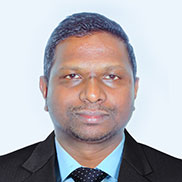
Dr Shivaprasad Kumar Vijayalakshmi
Dr Shivaprasad is an assistant professor at Durham University, specialising in hydrogen energy systems, low-carbon fuels and sustainable technologies. With over 12 years of experience, he leads UK-funded projects on biomass gasification, carbon capture and liquid hydrogen. His interdisciplinary work spans mechanical and energy engineering, and he is actively engaged in international research and STEM outreach, advancing innovations in clean fuel systems and integrated energy solutions for a net zero future.
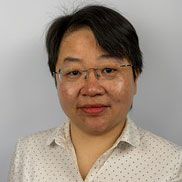
Dr Janie Ling Chin
Dr Janie Ling Chin, an Assistant Professor and emerging researcher, leads the impactful IAA project, "Energy Recovery and Utilisation," securing substantial funding. As a Co-Investigator in diverse projects, including "Growing Teesside's Hydrogen Economy," she contributes actively to cutting-edge research, shaping a sustainable energy future.

Professor Laura Marsiliani
Professor Laura Marsiliani, an environmental and energy economist at Durham University Business School, stands as a Director of the Centre for Environmental and Energy Economics (CE3). As the Faculty of Business Lead in the Centre for Sustainable Development, Law, and Policy, and a Fellow of the Durham Energy Institute, Professor Marsiliani contributes significantly to shaping sustainable economic and environmental policies through her cutting-edge research.

Professor Kumar Patchigolla
Professor Kumar Patchigolla, Professor of Decarbonisation of Industrial Clusters at NZIIC, brings over 23 years of experience in chemical engineering. His multidisciplinary work spans combustion, gasification, energy storage, renewables, hydrogen generation, desalination, and sustainable lithium extraction. With a strong emphasis on carbon neutrality and sustainable fuel utilisation, Professor Patchigolla's research contributes significantly to advancing energy transition programs worldwide.
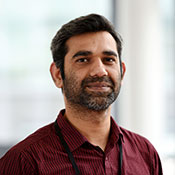
Dr Danial Qadir
Dr Danial Qadir is a research fellow at the Net Zero Industry Innovation Centre. With over 10 years of experience in membrane technology, carbon capture and hydrogen systems, he develops clean, scalable energy solutions. He holds a PhD in chemical engineering and now leads the hydrogen burner development as part of REHIP. His work supports innovation in sustainable fuels and low-emission industrial systems.

Professor Simone Abram
Simone Abram, Professor of Anthropology and Executive Director of the Durham Energy Institute, plays a pivotal role in integrating diverse disciplinary perspectives on energy and society. As the Durham lead for the MSc Sustainability, Energy, and Development, she also chairs the Association for Social Anthropologists in the UK. Simone's research explores the intricate intersections of energy and society, with a particular emphasis on ethical and just transitions, making her a driving force in understanding the evolving social and political dimensions of energies.

Dr Andy Smallbone
Andrew, Director of the EPSRC Network+ on Decarbonisation of Heating and Cooling, brings a wealth of expertise to the Department of Engineering at Durham University. As the Co-Director of the EPSRC Network+ on Hydrogen for Transportation, he leads interdisciplinary research teams focusing on decarbonising energy, heat, transport, and industry. Renowned for his work in techno-economic evaluation and advanced numerical modelling, Andrew is at the forefront of developing engineering prototypes and hardware demonstrations, contributing significantly to innovative energy solutions.

Dr Sean Williams
Dr Sean Williams oversees technical coordination for REHIP. Formerly in the Royal Air Force and Ministry of Defence, he holds a PhD in control engineering. His experience includes aerospace systems, EU Horizon 2020 projects and smart city initiatives. Now at Net Zero, he leads research on industrial collaboration and supports the adoption of zero-emission technologies across Tees Valley's transport sector.

Professor Matthew Cotton
Professor Matthew Cotton, Chair in Public Policy and Director of the Centre for Social Innovation at Teesside University, is a leading researcher in the social and ethical dimensions of energy systems. With a focus on 'just transitions,' Professor Cotton explores how the socio-economic benefits of net-zero innovation can be shared across diverse communities. His work in the Research England Hydrogen Innovation Project aligns with a broader portfolio addressing energy and climate justice.
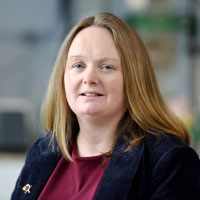
Dr Clair Cooper
Dr Clair Cooper is an interdisciplinary researcher and just transitions fellow on the Research England Hydrogen Innovation Project. Her work examines how industry, policymakers and communities perceive hydrogen's role in a low-carbon future and supports workers developing green skills. She completed her PhD at Durham University, has professional experience in the UK water industry and previously held a postdoctoral role at Trinity College Dublin on citizen science co-design.

Dr Muhammad Shahbaz
Dr Muhammad Shahbaz is a research fellow at Teesside University's Net Zero Industry Innovation Centre, specialising in green hydrogen and net zero technologies. His research focuses on hydrogen production, BECCS, thermal energy processes, energy system optimisation and commercialisation. His experience spans experimental lab setups to pilot-scale operations, as well as process modelling up to system level. He has numerous publications in reputable journals and conferences and serves on the editorial boards of Carbon Capture Science and Technology, and Journal of Gas Science and Engineering.

Dr Hadi Taghavifar
Dr Hadi Taghavifar specialises in sustainable propulsion, maritime engineering, hydrogen-based energy systems, advanced propulsion technologies, digital twins and life-cycle assessment of alternative fuels. He is involved in REHIP projects including energy storage and energy transition. He contributed to research activities in Norway, including the MARKOM II project on digital twins for green ship operations, the UArctic2022 project on Arctic ship routing, and the EU H2020 SeaTech initiative on dual-fuel retrofit and renewable integration. Currently, he is an assistant professor (research) at Durham University with experience in maritime propulsion, clean energy systems, AI-driven decision making and sustainable engineering.

Dr Alessandro Giampieri
Dr Alessandro Giampieri is a research associate at Durham University focusing on sustainable energy systems. His work centres on sorption-based heating, cooling and humidity control; and recovering low-temperature heat from industry and the hydrogen supply chain for use in district energy and thermochemical systems.
He has collaborated with industrial partners, including Nissan UK and Kromek, and accelerator programmes such as Innovate UK ICURe, alongside public engagement through STEM outreach and Pint of Science. Within REHIP, he contributes to model low-grade heat recovery and integration to enable scalable, low-emission energy networks.

Dingkun Lu
Dingkun is an assistant professor in economics at Durham University, and a fellow of the Durham Energy Institute and Centre for Sustainable Development. He has a PhD in economics from the University of Glasgow.
Dingkun is an economist active in the fields of environmental and energy economics. His current research focuses on overcoming the trade-off between environmental improvement and productivity decreases.

Dr Muhammad Maqbool
Dr Muhammad Maqbool earned his PhD in materials science from Peking University in 2022, followed by postdoctoral research in South Korea. He then joined the University of Birmingham as a research fellow before moving to Teesside University. His expertise spans polymer synthesis, polymer composites, thermal energy storage, hydrogen production and advanced materials for clean energy applications. His research focuses on the design and development of functional polymers and composites for energy conversion, storage and hydrogen technologies, integrating synthetic chemistry, materials engineering and electrochemical analysis.
Are you ready to embark on the journey towards a sustainable hydrogen-powered future with us?
We are looking to support both SMEs and large organisations through the project who are seeking support with innovative solutions. If you're an industry player or a visionary researcher keen to join our mission, we invite you to get in touch. Let's collaborate to shape a cleaner, greener tomorrow.